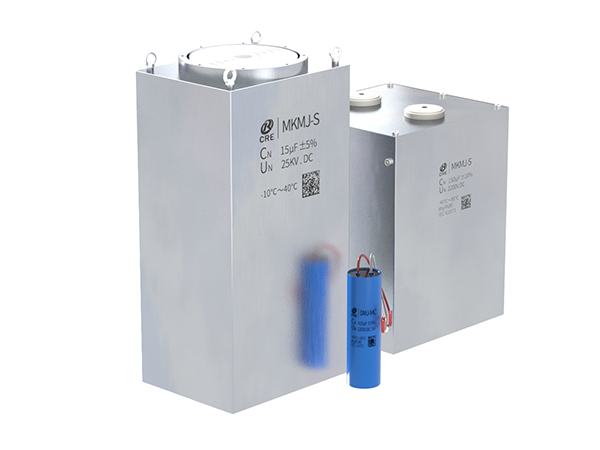- All
- Product Name
- Product Keyword
- Product Model
- Product Summary
- Product Description
- Multi Field Search
Views: 0 Author: Site Editor Publish Time: 2025-09-15 Origin: Site











In the realm of high-voltage applications, capacitors play a crucial role in energy storage and power management. Among the various types of capacitors, regular capacitors and Pulse Capacitors are often compared due to their distinct functionalities and applications. Understanding the differences between these two types of capacitors is essential for engineers and designers who aim to optimize performance in high-voltage systems. This article delves into the technical distinctions, applications, and benefits of regular versus pulse capacitors, providing a comprehensive analysis for those involved in high-voltage engineering.
Capacitors are fundamental components in electrical circuits, known for their ability to store and release electrical energy. In high-voltage applications, capacitors are used to stabilize voltage and power flow, filter signals, and manage energy storage. Regular capacitors, typically used in a wide range of applications, are designed to handle steady-state voltage and provide consistent performance over time. They are commonly found in power supply systems, signal processing circuits, and various electronic devices.
On the other hand, pulse capacitors are specialized for applications requiring rapid discharge of energy in short bursts. These capacitors are engineered to withstand high peak currents and voltages, making them ideal for pulsed power applications such as radar systems, medical defibrillators, and particle accelerators. The unique design of pulse capacitors allows them to handle the intense electrical stress associated with high-voltage pulses, ensuring reliability and efficiency in demanding environments.

The primary technical difference between regular and pulse capacitors lies in their construction and material composition. Regular capacitors are typically made from materials such as aluminum electrolytic, ceramic, or tantalum, which are suitable for handling continuous voltage levels. These materials provide stability and longevity, making regular capacitors suitable for general-purpose applications.
Pulse capacitors, however, are constructed using materials like polypropylene film or metallized film, which offer superior dielectric properties and high energy density. This construction enables pulse capacitors to endure the rapid charge and discharge cycles characteristic of pulsed power applications. Additionally, pulse capacitors are designed with thicker dielectric layers and robust terminals to handle the mechanical and thermal stresses associated with high-voltage pulses.
Regular capacitors are versatile components used in a myriad of applications. In power supply systems, they function as filters to smooth out voltage fluctuations and reduce electrical noise. This capability is crucial in ensuring the stable operation of electronic devices and systems. Regular capacitors are also employed in timing circuits, where they help control the timing intervals in oscillators and pulse generators.
Furthermore, regular capacitors are integral to signal processing circuits, where they aid in coupling and decoupling signals, thus preventing interference between different stages of a circuit. Their ability to store and release energy efficiently makes them indispensable in applications ranging from consumer electronics to industrial machinery.
Pulse capacitors are specifically designed for applications that require rapid energy discharge. In radar systems, for instance, pulse capacitors are used to generate high-power microwave pulses essential for detecting objects at a distance. The ability of pulse capacitors to deliver quick bursts of energy is also leveraged in medical defibrillators, where they provide the necessary electrical shock to restore normal heart rhythm in patients experiencing cardiac arrest.
Additionally, pulse capacitors are utilized in particle accelerators, where they supply the high-voltage pulses needed to accelerate particles to high speeds. The robust construction of pulse capacitors ensures they can withstand the extreme electrical and thermal conditions present in these high-energy environments, making them a critical component in advanced scientific research and industrial applications.
Regular capacitors offer several advantages, including cost-effectiveness, availability, and ease of integration into various circuits. Their widespread use in consumer electronics and industrial applications is a testament to their reliability and versatility. However, regular capacitors are limited by their inability to handle high peak currents and rapid discharge cycles, which restricts their use in pulsed power applications.
Pulse capacitors, while more expensive and specialized, provide significant advantages in applications requiring high energy density and rapid discharge capabilities. Their ability to handle high peak currents and voltages makes them indispensable in critical applications such as medical devices and scientific research equipment. However, the specialized materials and construction techniques required for pulse capacitors can lead to higher costs and limited availability compared to regular capacitors.
In conclusion, the choice between regular and Pulse Capacitors in high-voltage applications depends on the specific requirements of the system. Regular capacitors are suitable for applications that demand consistent performance and cost-effectiveness, while pulse capacitors are essential for applications requiring rapid energy discharge and high peak current handling. Understanding the technical differences and applications of these capacitors is crucial for engineers and designers aiming to optimize performance and reliability in high-voltage systems. By selecting the appropriate capacitor type, engineers can ensure efficient energy management and enhance the overall functionality of their high-voltage applications.